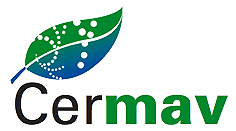Steve NONO-TAGNE completed his thesis at Cermav under the co-Direction of Issei OTSUKA, CNRS Researcher, and Yoshiharu NISHIYAMA, CNRS Research Director.
His thesis is entitled “Electrospinning of Cellulose Carbamates for Enantioselective Membrane Filtration”.
Abstract :
“Pure enantiomers such as drugs, are typically produced via asymmetric synthesis or chiral resolution. Asymmetric synthesis is costly, while chiral resolution methods (such as chromatography, crystallization, and kinetic resolution) are known to be discontinuous and performed on analytical scales. With the increasing demand for enantiomerically pure compounds, their large-scale production is scientifically and economically important. My Ph.D. project explores chiral resolution via enantioselective membrane filtration, a promising strategy for large-scale continuous processing. I synthesized cellulose phenyl carbamate derivatives by reacting four different cellulose samples with the respective isocyanates in dry pyridine. Electrospinning, a method of choice for producing membranes with a high surface area-to-volume ratio, tunable porosity, and strong mechanical properties, was utilized to produce cellulose carbamate membranes. I examined the enantioselective permeation of six racemic mixtures through the electrospun membranes by liquid-liquid permeation and filtration experiments. The membrane’s fiber diameter had little impact on the enantioselectivity, contrary to our initial guess that membranes with smaller fiber diameters would exhibit higher enantioselectivity. Among the six racemic mixtures, propranolol showed the highest enantiomeric excess of 65% after 24 filtration cycles.”
